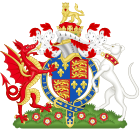Vagabonds and Beggars Act 1494 facts for kids

|
|
| Long title | An Act against Vagabonds and Beggars. |
|---|---|
| Citation | 11 Hen. 7. c. 2 |
| Introduced by | Laurence |
| Territorial extent | |
| Dates | |
| Royal assent | 1494 |
| Repealed | 1623 |
| Other legislation | |
| Repealed by | 21 Jas. 1. c. 28 (1623) |
| Relates to | Unlawful Games Act 1541 |
| Text of statute as originally enacted | |
The Vagabonds and Beggars Act 1494 was a law passed in England during the time of King Henry VII. This law aimed to control people who were poor and did not have a fixed home or job.
The Act said that "vagabonds" (people wandering without a home) and "beggars" (people asking for money) who seemed suspicious would be put in the stocks for three days and three nights. During this time, they would only be given bread and water. After their punishment, they had to leave the town. Any beggar who was able to work had to go back to the area where they last lived, were best known, or were born. They had to stay there, or face the same punishment.
Contents
Life in Old England: Why This Law Was Made
In England, a long time ago (from the 1400s to the 1700s), local government worked very differently. There was no police force like we have today. Instead, people in the community helped keep law and order.
Local jobs in government were often done by volunteers. These roles were filled by neighbors, friends, employers, and church leaders. The idea was that everyone in the community worked together to keep things orderly.
Changes in Society
However, during this time, England started to change a lot. Prices for goods went up (this is called inflation), and the number of people living in England grew very quickly. These changes made life harder for many people.
The gap between rich and poor people also became much wider. These social changes caused problems for the old way of life. People used to believe that everyone had a clear "place" in society.
How Laws Changed
The growing population and social changes put a lot of pressure on the government. They started to change how they kept order across the country. Often, poor people became the target of these new laws.
Laws like the Vagabonds and Beggars Act 1494 were made to punish poor people. They were labeled as "beggars" and "vagabonds." These laws aimed to control people who were simply poor and struggling.
Keeping People in Their Place
People in old England strongly believed in social order. They thought everyone should know their correct place in society. Poor people challenged this idea because they didn't fit into a specific place.
Other laws, like the Poor Laws and "settlement laws," came after this Act. These laws also tried to keep people in what was seen as their "correct" place in society.
 | Anna J. Cooper |
 | Mary McLeod Bethune |
 | Lillie Mae Bradford |

